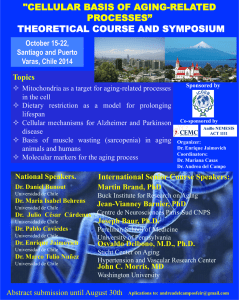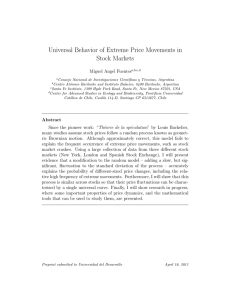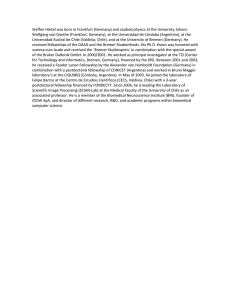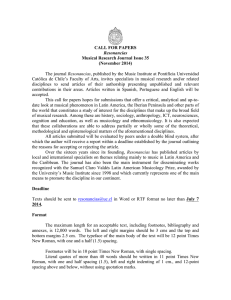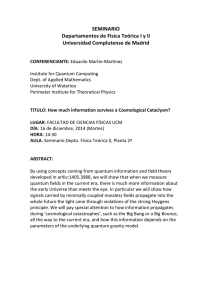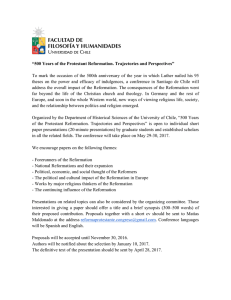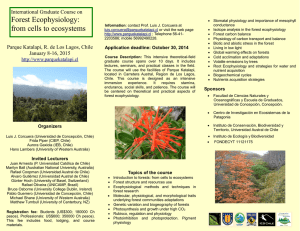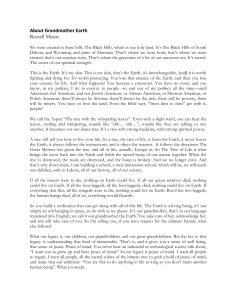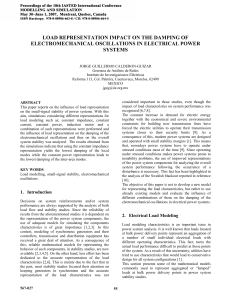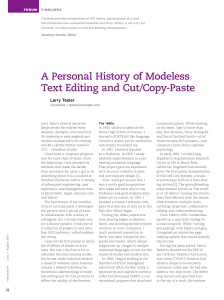265 Fano Effect and Dark State in Whispering Gallery Resonators
Anuncio
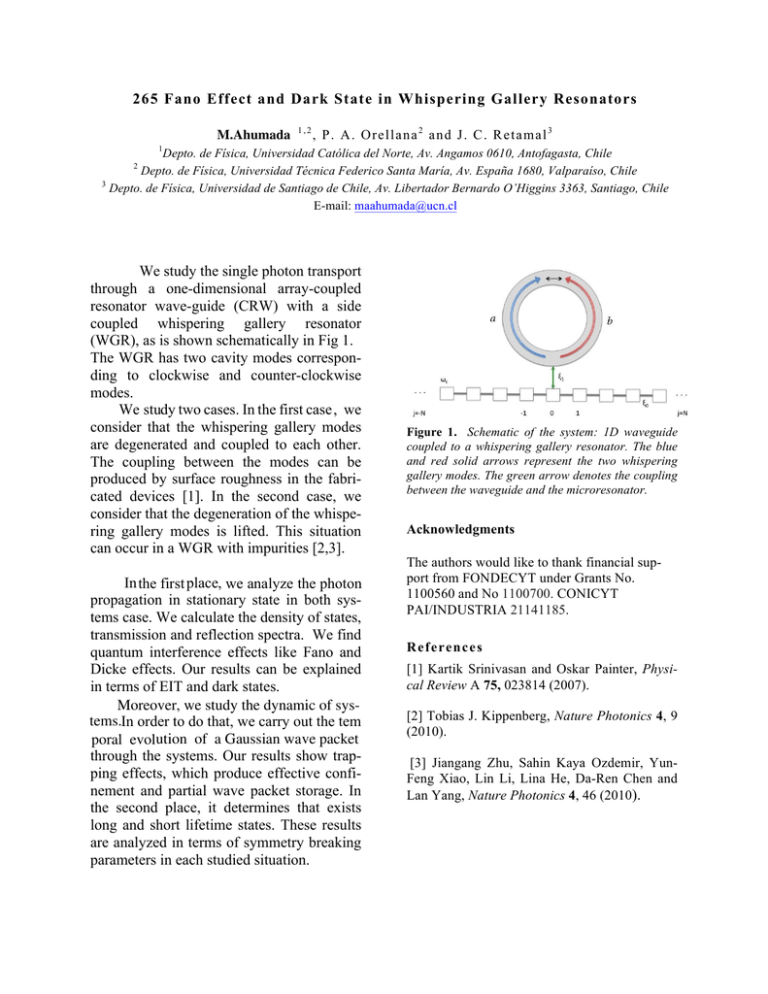
265 Fano Effect and Dark State in Whispering Gallery Resonators M.Ahumada 1,2 , P . A . O r e lla n a 2 a n d J . C . R e ta m a l 3 1 Depto. de Física, Universidad Católica del Norte, Av. Angamos 0610, Antofagasta, Chile Depto. de Física, Universidad Técnica Federico Santa María, Av. España 1680, Valparaíso, Chile 3 Depto. de Física, Universidad de Santiago de Chile, Av. Libertador Bernardo O’Higgins 3363, Santiago, Chile E-mail: maahumada@ucn.cl 2 We study the single photon transport through a one-dimensional array-coupled resonator wave-guide (CRW) with a side coupled whispering gallery resonator (WGR), as is shown schematically in Fig 1. The WGR has two cavity modes corresponding to clockwise and counter-clockwise modes. We study two cases. In the first case, we consider that the whispering gallery modes are degenerated and coupled to each other. The coupling between the modes can be produced by surface roughness in the fabricated devices [1]. In the second case, we consider that the degeneration of the whispering gallery modes is lifted. This situation can occur in a WGR with impurities [2,3]. In the first place, we analyze the photon propagation in stationary state in both systems case. We calculate the density of states, transmission and reflection spectra. We find quantum interference effects like Fano and Dicke effects. Our results can be explained in terms of EIT and dark states. Moreover, we study the dynamic of systems.In order to do that, we carry out the tem poral evolution of a Gaussian wave packet through the systems. Our results show trapping effects, which produce effective confinement and partial wave packet storage. In the second place, it determines that exists long and short lifetime states. These results are analyzed in terms of symmetry breaking parameters in each studied situation. Figure 1. Schematic of the system: 1D waveguide coupled to a whispering gallery resonator. The blue and red solid arrows represent the two whispering gallery modes. The green arrow denotes the coupling between the waveguide and the microresonator. Acknowledgments The authors would like to thank financial support from FONDECYT under Grants No. 1100560 and No 1100700. CONICYT PAI/INDUSTRIA 21141185. References [1] Kartik Srinivasan and Oskar Painter, Physical Review A 75, 023814 (2007). [2] Tobias J. Kippenberg, Nature Photonics 4, 9 (2010). [3] Jiangang Zhu, Sahin Kaya Ozdemir, YunFeng Xiao, Lin Li, Lina He, Da-Ren Chen and Lan Yang, Nature Photonics 4, 46 (2010).
